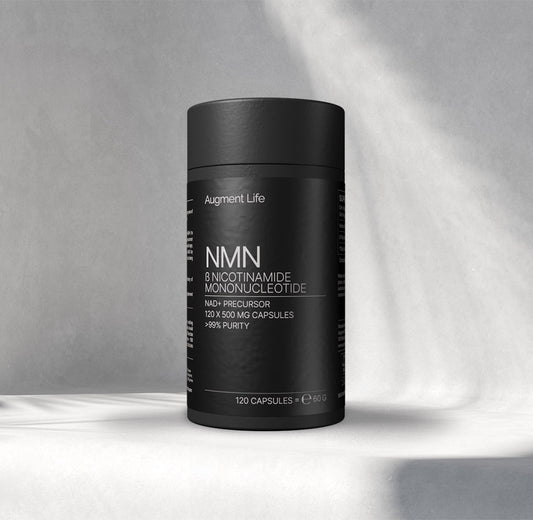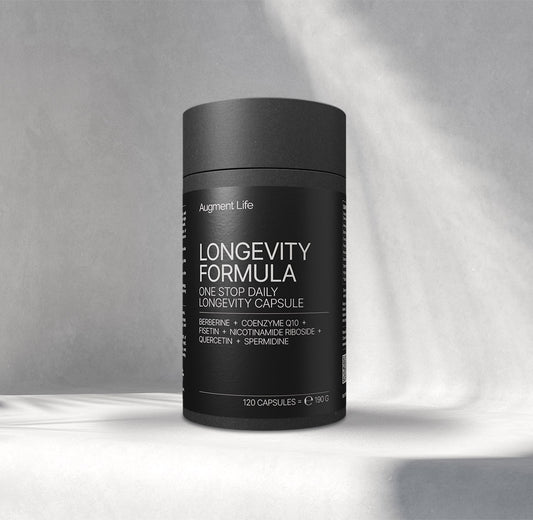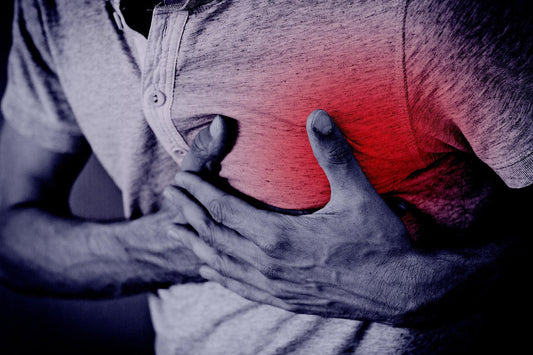Introduction
It's not one of life's finer moments when you have to pop some pills. But imagine if you could see everything that pill is preventing, all the pain and discomfort, before you even take it? Or maybe even avoid having to take it at all. That would be ideal, right?
In this article, we'll explore how lifestyle choices can help keep you healthy and minimize the chances of needing to pop a pill (or three). So read on for some tips on feeling and looking great while also increasing the odds that even if you choose to take supplements or need other proactive health interventions that they are mild conditions you can bounce back from easily.
Exercise
For many people, exercise is the last thing they want to do. We've all heard that we need it, and we know that it can help us live a longer, healthier life. But what exactly does exercise mean? How much is enough? What kind of exercise should you be doing?
First things first: everyone has their own personal preferences when it comes to getting fit—you may have heard that some people like running while others prefer weightlifting or yoga. The important thing is not only finding something you enjoy doing but also making sure it's something that works for your body type and schedule.
Fortunately, there are so many different ways of getting active these days that there's no shortage of options for people who don't want to spend hours in the gym every day (and if those are still your goals then go for it! More power to you). Online classes make exercising at home accessible—and fun!—for anyone who doesn't have time for regular workouts but still wants an effective routine with plenty of variety.
Maintain a healthy weight
Maintaining a healthy weight is important for your health and longevity.
-
It reduces the risk of chronic diseases like heart disease, diabetes, and cancer.
-
It can help you feel better physically and mentally as well as improve your sex life.
To maintain a healthy weight:
-
Eat less or no more than you need. The amount of calories you need will vary depending on your age, height, gender and activity level. To determine how many calories you need to eat daily review this chart from the US Department of Health and Human Services.

-
Eat foods that are low in fat but high in fiber such as fruits and vegetables - watch out for high sodium content (salt).
-
Make sure you drink enough water each day so that when you pass urine it's pale yellow or clear (not dark yellow).
Get enough sleep
You're not a doctor, but you know that sleep is important. A lot of researchers agree with you—it's linked to good health, memory and learning, and mood. But how much sleep do we really need? And what does it look like when someone gets too little or too much?
Most adults need between 7 and 9 hours of sleep each night to function at their best. Your body (and your brain) work hard all day repairing cells and keeping everything running smoothly. It's during deep stages of sleep (stage 4 or REM) that the body repairs itself while we're unconscious—so if we don't get enough shut-eye, our bodies start breaking down faster than they can fix themselves. Sleeping less than 6 hours per night has been shown to have serious side effects including higher blood pressure, heart disease risk factors like high cholesterol and diabetes risk factors such as obesity! Keep in mind that these are averages: some people may need less or more than this amount based on their age or other medical conditions; talk with your doctor if you feel tired all the time but aren't sure why!
To enjoy a fascinating read about why we sleep, how much is enough, and if you can "make up" for lost sleep on the weekends, check out "Why We Sleep" by Matthew Walker PhD (Simon and Schuster).
Eat a healthy diet
-
Eat a healthy diet.
-
Avoid processed foods, especially those with added salt or sugar. If you're looking to get healthier, it's best to cut back on these types of foods before they're even introduced into your life. However, if you already have a taste for them, it can be difficult to give them up completely since they do have a place in our culture and are often part of social events. But by cutting back on these products in favor of whole food options (fruits, vegetables), fish instead of red meat and other lean proteins like chicken breast or egg whites instead of beef burgers (which are also high in cholesterol) will help ease the transition into healthier eating habits while still allowing you to enjoy what tastes good without harming yourself in the long run.
Don't smoke
Smoking can cause cancer and other serious health problems. It's also addictive, which means quitting is hard. But if you want to improve your health and quality of life, quitting is one of the best things you can do for yourself. Nicotine replacement therapy (NRT) products like nicotine gum, lozenges, nasal spray or inhaler help reduce withdrawal symptoms while you're trying to quit smoking completely. They may also be used in combination with counselling or support groups to increase your chances of success when quitting smoking altogether.
Avoid excessive alcohol consumption
One of the most damaging habits you can have is excessive alcohol consumption. Drinking too much is linked to liver damage, increased risk of cancer and heart disease, high blood pressure and diabetes. Avoiding alcohol will help you live a longer and healthier life!
Reduce stress
Stress is a tricky thing. It can be good or bad, depending on the situation.
Some people have learned to leverage stress in their lives to motivate themselves and accomplish more of what they want. Others find that when they're stressed out, their quality of life suffers as a result: They feel anxious or overwhelmed and are less productive than usual.
So what's the best way to handle stress? The best thing you can do is learn how to manage it. There are plenty of ways to reduce stress in your life and keep it under control many include the very lifestyle suggestions we've already discussed above; like getting enough sleep, and exercising regularly. Additionally try to keep a journal or blog where you can vent about things that are bothering you (this will help get them out of your system). An excellent technique that works for us has been to try meditation or yoga if they sound appealing.
Stay socially connected
You might have heard that social support can help you cope with stress and anxiety. And it's true! If you're feeling overwhelmed by your daily workload, or if a loved one has recently passed away and left you feeling helpless, just talking to someone who’s going through similar things can be effective in reducing your stress levels. But social support isn't only effective at helping people cope with stressful circumstances; it also helps keep us healthy and happy throughout our lives. Research shows that the more connected we are with others, the longer we live! In fact, having regular contact with family members may be as important for longevity as quitting smoking or exercising regularly.
See your doctor regularly, seek care early when you feel sick.
As you age, it becomes more important to see a doctor regularly and take care of your health. You may have heard the saying "prevention is better than cure." This is especially true when it comes to treating diseases like high blood pressure or diabetes.
Early detection leads to better outcomes when treating these illnesses. You will also feel better because you will know what's going on with your body, which can help reduce stress levels as well. It's also helpful if you have a doctor who understands how to treat older adults because they are different from younger people in some ways. Your doctor should be able to explain why this is so and give you advice about how best to manage your condition based on their knowledge of aging-related changes in the body (or at least point out where those changes occur).
You can increase your chances of living longer by following some of the recommendations in this article.
If you're worried about aging, these tips can help you live a healthier and happier life.
-
Eat more vegetables.
-
Exercise at least 30 minutes a day (don't forget the dog walk!)
-
Reduce stress by keeping busy, connecting with others and taking time for yourself
Conclusion
Remember, these are just guidelines. Not every single one is going to be right for you and that’s okay. The key is to do what feels right for you and make sure you are doing it consistently so that it becomes your lifestyle. Then, when the time comes that you need support from others in taking care of yourself (which will happen eventually), they will have a better understanding of how best to help out because they already know what works best for YOU!











